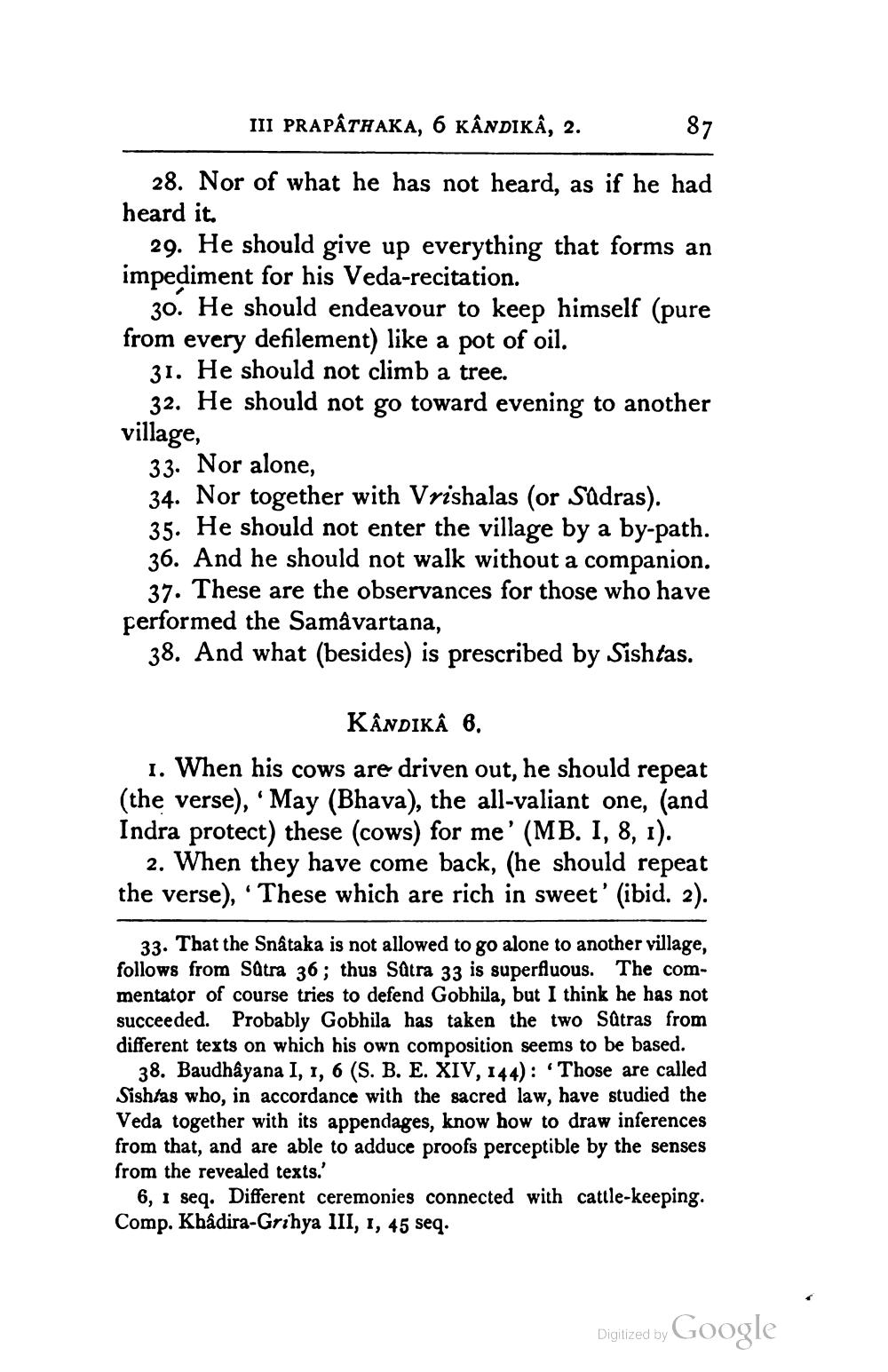________________
III PRAPATHAKA, 6 KÂNDIKÂ, 2.
87
28. Nor of what he has not heard, as if he had heard it.
29. He should give up everything that forms an impediment for his Veda-recitation.
30. He should endeavour to keep himself (pure from every defilement) like a pot of oil.
31. He should not climb a tree.
32. He should not go toward evening to another village,
33. Nor alone, 34. Nor together with Vrishalas (or Sadras). 35. He should not enter the village by a by-path. 36. And he should not walk without a companion.
37. These are the observances for those who have performed the Samâvartana,
38. And what (besides) is prescribed by Sishtas.
KÂNDIKÂ 6. 1. When his cows are driven out, he should repeat (the verse), ‘May (Bhava), the all-valiant one, (and Indra protect) these (cows) for me' (MB. I, 8, 1).
2. When they have come back, (he should repeat the verse), “These which are rich in sweet' (ibid. 2).
33. That the Snataka is not allowed to go alone to another village, follows from Satra 36; thus Sätra 33 is superfluous. The commentator of course tries to defend Gobhila, but I think he has not succeeded. Probably Gobhila has taken the two Sätras from different texts on which his own composition seems to be based.
38. Baudhayana I, 1, 6 (S. B. E. XIV, 144): Those are called Sish/as who, in accordance with the sacred law, have studied the Veda together with its appendages, know how to draw inferences from that, and are able to adduce proofs perceptible by the senses from the revealed texts.'
6, 1 seq. Different ceremonies connected with cattle-keeping. Comp. Khâdira-Grihya III, 1, 45 seq.
Digitized by Google




